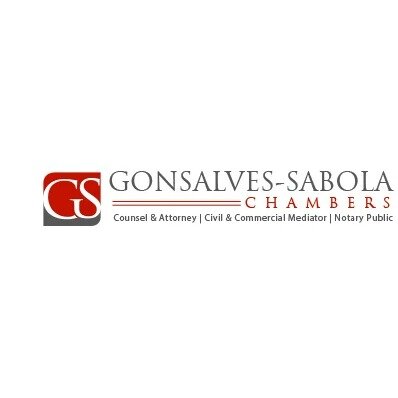Best Water Law Lawyers in Nassau
Share your needs with us, get contacted by law firms.
Free. Takes 2 min.
List of the best lawyers in Nassau, Bahamas
About Water Law in Nassau, Bahamas
Water Law in Nassau, Bahamas is a specialized area of law that governs the ownership, use, allocation, and regulation of water resources within the country. This includes surface water such as rivers and lakes, groundwater sources, and the use of coastal or marine water. Given Nassau’s reliance on water for tourism, industry, and domestic use, proper management and compliance with water regulations is crucial for both residents and businesses.
The legal framework for Water Law seeks to ensure the sustainable management and protection of water resources. It addresses various issues such as water rights, pollution control, conservation, infrastructure development, and dispute resolution. The government, through relevant ministries and agencies, establishes rules and standards to maintain water quality and regulate water-related activities within Nassau and the wider Bahamian archipelago.
Why You May Need a Lawyer
There are several common situations where individuals or organizations may require legal assistance in connection with Water Law in Nassau, Bahamas:
- Disputes over water usage rights or access, particularly in shared developments or agricultural settings.
- Concerns about water pollution affecting property, health, or the environment.
- Issues regarding the construction or modification of wells, boreholes, or water infrastructure on private or commercial property.
- Compliance with local water quality and wastewater disposal regulations for residential, commercial, or industrial purposes.
- Licensing and permitting for major water projects such as desalination facilities or resorts with significant water needs.
- Development projects near or affecting coastal and marine waters that require environmental impact assessments.
- Claims relating to flooding or damage caused by water mismanagement.
- Advice on government policies or enforcement actions involving water access or restrictions during droughts or emergencies.
- Resolving land and water boundary disputes in coastal or inland locations.
- Guidance on conservation requirements and sustainable practices for tourism, hospitality, or agricultural operations.
Legal expertise can help navigate complex regulatory requirements, protect your interests, and resolve conflicts related to water resources in Nassau.
Local Laws Overview
Water Law in Nassau is guided by a combination of statutes, regulations, and common law principles. The primary pieces of legislation include the Water and Sewerage Act, Environmental Health Services Act, and relevant environmental protection laws.
Key areas regulated under Bahamian Water Law include:
- Water Rights: Establishes rights of residential, commercial, and public users to access and utilize water resources, subject to government permits and licenses.
- Water Quality: Sets forth standards for potable water and the regulation of contaminants. The Department of Environmental Health Services enforces these standards and monitors water safety.
- Infrastructure and Supply: The Water and Sewerage Corporation (WSC) manages potable water supply, sanitation, and sewerage infrastructure for Nassau and surrounding areas.
- Pollution Control: Addresses the prevention of contamination from industrial, residential, or agricultural sources. Activities that may lead to pollution require prior approval and ongoing monitoring.
- Permitting and Licensing: Major uses such as drilling wells, constructing desalination plants, or wastewater discharge require government authorization and periodic compliance checks.
- Conservation: The law promotes water conservation, particularly during periods of low rainfall or drought, and may impose temporary restrictions.
- Dispute Resolution: Provides mechanisms for resolving disputes between individuals, landowners, governmental agencies, and businesses regarding water allocation or contamination.
The government plays a key role in managing water resources and enforcing these laws to balance public, private, and environmental interests within Nassau.
Frequently Asked Questions
What agency is responsible for water supply in Nassau, Bahamas?
The Water and Sewerage Corporation (WSC) is responsible for the provision of potable water and sewerage services throughout Nassau and the wider Bahamas.
Do I need a permit to drill a well on my property?
Yes, drilling a well requires a permit from the Water and Sewerage Corporation and may also require environmental clearance from government agencies.
How are water rights assigned in Nassau?
Water rights are generally regulated by government authorities and are subject to permitting. The rights are not absolute and must comply with laws and regulations concerning use, conservation, and impact on other users.
Can I use rainwater harvesting systems on my property?
Yes, rainwater harvesting is generally permitted and encouraged for supplemental water use, but systems must meet certain health and safety standards to prevent contamination.
What can I do if my neighbor’s activities are contaminating my water supply?
You can file a formal complaint with the Department of Environmental Health Services or seek legal assistance to address contamination issues, including potential compensation for damages.
Who regulates wastewater and sewer connections in Nassau?
The Water and Sewerage Corporation regulates wastewater treatment and sewerage connections, ensuring compliance with health and environmental standards.
Are there restrictions on water use during droughts?
Authorities may impose temporary restrictions on water use during droughts or when supply is limited, to ensure fair distribution and conservation.
What legal protections exist for natural bodies of water in Nassau?
Local environmental laws and the Environmental Health Services Act provide protection for natural bodies of water, including regulations to minimize pollution and harmful development.
How are disputes over waterfront land boundaries resolved?
Waterfront land and boundary disputes may be resolved through negotiation, mediation, or the court system, often with professional land and water surveyors providing evidence.
Is it possible to obtain a license to operate a private desalination plant?
Yes, it is possible to apply for a license to operate a private desalination plant subject to approval by government agencies and compliance with environmental and safety regulations.
Additional Resources
For more information and assistance, you may consider reaching out to the following resources:
- Water and Sewerage Corporation (WSC) - The main provider and regulator for water supply and sewage services.
- Department of Environmental Health Services (DEHS) - Oversees environmental protection, pollution control, and public health related to water resources.
- Ministry of the Environment and Natural Resources - Responsible for broader environmental policy and conservation efforts, including water resource management.
- Bahamian Bar Association - Can assist with referrals to qualified attorneys specializing in Water Law.
- Bahamas Environment, Science and Technology (BEST) Commission - Evaluates environmental impact assessments for projects affecting water resources.
Next Steps
If you believe you need legal assistance with a Water Law issue in Nassau, Bahamas, consider the following steps:
- Gather all relevant documents such as property deeds, permits, correspondence, or notices concerning water use or disputes.
- Outline your concerns or questions clearly to help focus discussions with a legal professional.
- Contact local authorities or agencies such as the Water and Sewerage Corporation or Department of Environmental Health Services for initial information or to file a complaint if necessary.
- Reach out to a qualified attorney who specializes in Water Law for advice on your rights, obligations, and possible remedies.
- Follow your lawyer’s recommendations for resolving disputes, applying for permits, or filing legal actions if appropriate.
Professional legal guidance can protect your interests and help you navigate the complex regulatory landscape surrounding water resources in Nassau, Bahamas.
Lawzana helps you find the best lawyers and law firms in Nassau through a curated and pre-screened list of qualified legal professionals. Our platform offers rankings and detailed profiles of attorneys and law firms, allowing you to compare based on practice areas, including Water Law, experience, and client feedback.
Each profile includes a description of the firm's areas of practice, client reviews, team members and partners, year of establishment, spoken languages, office locations, contact information, social media presence, and any published articles or resources. Most firms on our platform speak English and are experienced in both local and international legal matters.
Get a quote from top-rated law firms in Nassau, Bahamas — quickly, securely, and without unnecessary hassle.
Disclaimer:
The information provided on this page is for general informational purposes only and does not constitute legal advice. While we strive to ensure the accuracy and relevance of the content, legal information may change over time, and interpretations of the law can vary. You should always consult with a qualified legal professional for advice specific to your situation.
We disclaim all liability for actions taken or not taken based on the content of this page. If you believe any information is incorrect or outdated, please contact us, and we will review and update it where appropriate.

















